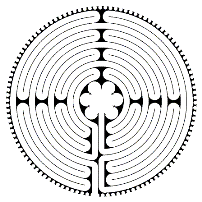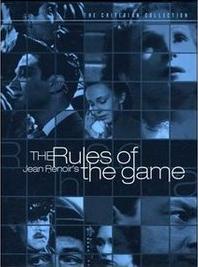Roget's Thesaurus - Contents
CLASS I. WORDS EXPRESSING ABSTRACT RELATIONS
SECTION I. EXISTENCE
1. Being, in the Abstract
Existence (1)
Inexistence (2)
2. Being, in the Concrete
Substantiality (3)
Unsubstantiality (4)
3. Formal Existence
Intrinsicality (5)
Extrinsicality (6)
4. Modal Existence
State (7)
Circumstance (8)
SECTION II. RELATION
1. Absolute Relation
Relation (9)
Irrelation (10)
Consanguinity (11)
Correlation (12)
Identity (13)
Contrariety (14)
Difference (15)
2. Continuous Relation
Uniformity (16)
Nonuniformity (16a)
3. Partial Relation
Similarity (17)
Dissimilarity (18)
Imitation (19)
Nonimitation (20)
Variation (20a)
Copy (21)
Prototype (22)
4. GENERAL RELATION
Agreement (23)
Disagreement (24)
SECTION III. QUANTITY
1. Simple Quantity
Quantity (25)
Degree (26)
2. Comparative Quantity
Equality (27)
Inequality (28)
Mean (29)
Compensation (30)
Quantity by comparison with a standard
Greatness (31)
Smallness (32)
Quantity by comparison with a simlar object
Superiority (33)
Inferiority (34)
Changes in quantity
Increase (35)
Nonincrease, Decrease (36)
3. Conjunctive Quantity
Addition (37)
Nonaddition (38)
Adjunct (39)
Remainder (40)
Decrement (40a)
Mixture (41)
Simpleness (42)
Junction (43)
Disjunction (44)
Connection (45)
Coherence (46)
Incoherence (47)
Combination (48)
Decomposition (49)
3. Concrete Quantity
Whole (50)
Part (51)
Completeness (52)
Incompleteness (53)
Composition (54)
Exclusion (55)
Component (56)
Extraneousness (57)
SECTION IV. ORDER
1. Order
Order (58)
Disorder (59)
Complexity (59a)
Arrangement (60)
Derangement (61)
2. Consecutive Order
Precedence (62)
Sequence (63)
Precursor (64)
Sequel (65)
Beginning (66)
End (67)
Middle (68)
Continuity (69)
Discontinuity (70)
Term (71)
3. Collective Order
Assemblage (72)
Nonassemblage (73)
Focus (74)
4. Distributive Order
Class (75)
Inclusion (76)
Exclusion (77)
Generality (78)
Speciality (79)
5. Order as Regards Categories
Normality (80)
Multiformity (81)
Conformity (82)
Unconformity (83)
SECTION V. NUMBER
1. Number, in the Abstract
Number (84)
Numeration (85)
List (86)
2. Determinate Number
Unity (87)
Accompaniment (88)
Duality (89)
Duplication (90)
Bisection (91)
Triality (92)
Triplication (93)
Trisection (94)
Four (95)
Quadruplication (96)
Quadrisection (97)
Five (98)
Quinquesection (99)
Plurality (100)
3. Indeterminate Number
Fraction (100a)
Zero (101)
Multitude (102)
Fewness (103)
Repetition (104)
Infinity (105)
SECTION VI. TIME
1. Absolute Time
Time (106)
Neverness (107)
Period (108)
Contingent Duration (108a)
Course (109)
Diuturnity (110)
Transientness (111)
Perpetuity (112)
Instantaneity (113)
Chronometry (114)
Anachronism (115)
2. Relative Time
1. Time with reference to Succession
Priority (116)
Posteriority (117)
Present Time (118)
Different time (119)
Synchronism (120)
Futurity (121)
The Past (122)
Newness (123)
Oldness (124)
Morning (125)
Evening (126)
3. [Time with reference to age? - gp]
Youth (127)
Age (128)
Infant (129)
Veteran (130)
Adolescence (131)
3. Time with reference to an Effect or Purpose
Earliness (132)
Punctuality (132a)
Lateness (133)
Occasion (134)
Untimeliness (135)
3. Recurrent Time
Frequency (136)
Infrequency (137)
Regularity of recurrence (138)
Irregularity of recurrence (139)
SECTION VII. CHANGE
1. Simple Change
Change (140)
Permanence (141)
Cessation (142)
Continuance in action (143)
Conversion (144)
Reversion (145)
Revolution (146)
Substitution (147)
Interchange (148)
2. Complex Change
Changeableness (149)
Stability (150)
Present Events
Eventuality (151)
Future Events
Destiny (152)
SECTION VIII. CAUSATION
1. Constancy of Sequence in Events
Cause (153)
Effect (154)
Attribution (155)
Chance (156)
2. Connection between Cause and Effect
Power (157)
Impotence (158)
Strength (159)
Weakness (160)
[3. Power in Operation]
Production (161)
Destruction (162)
Reproduction (163)
Producer (164)
Destroyer (165)
Paternity (166)
Posterity (167)
Productiveness (168)
Unproductiveness (169)
Agency (170)
Physical Energy (171)
Physical Inertness (172)
Violence (173)
Moderation (174)
4. Indirect Power
Influence (175)
Absence of Influence (175a)
Tendency (176)
Liability (177)
5. Combinations of Causes
Concurrence (178)
Counteraction (179)
CLASS II. WORDS RELATING TO SPACE
SECTION I. SPACE I N GENERAL
1. Abstract Space
Space (180)
Inextension (180a)
Region (181)
Place (182)
2. Relative Space
Situation (183)
Location (184)
Displacement (185)
3. Existence in Space
Presence (186)
Absence (187)
Inhabitant (188)
Abode (189)
Contents (190)
Receptacle (191)
SECTION II. DIMENSIONS
1. General Dimensions
Size (192)
Littleness (193)
Expansion (194)
Contraction (195)
Distance (196)
Nearness (197)
Interval (198)
Contiguity (199)
2. Linear Dimensions
Length (200)
Shortness (201)
Breadth, Thickness (202)
Narrowness (203)
Layer (204)
Filament (205)
Height (206)
Lowness (207)
Depth (208)
Shallowness (209)
Summit (210)
Base (211)
Verticality (212)
Horizontality (213)
Pendency (214)
Support (215)
Parallelism (216)
Perpendicularity (216a)
Obliquity (217)
Inversion (218)
Crossing (219)
3. Centrical Dimensions [dimensions having reference to a center]
1. General
Exteriority (220)
Interiority (221)
Centrality (222)
Covering (223)
Lining (224)
Clothing (225)
Divestment (226)
Circumjacence (227)
Interposition (228)
Circumscription (229)
Outline (230)
Edge (231)
Inclosure (232)
Limit (233)
2. Special
Front (234)
Rear (235)
Laterality (236)
Contraposition (237)
Dextrality (238)
Sinistrality (239)
Form (240)
Amorphism (241)
Symmetry (242)
Distortion (243)
Angularity (244)
Curvature (245)
Straightness (246)
Circularity (247)
Convolution (248)
Rotundity (249)
3. Superficial Form
Convexity (250)
Flatness (251)
Concavity (252)
Sharpness (253)
Bluntness (254)
Smoothness (255)
Roughness (256)
Notch (257)
Fold (258)
Furrow (259)
Opening (260)
Closure (261)
Perforator (262)
Stopper (263)
SECTION IV. MOTION
1. Motion in General
Motion (264)
Quiescence (265)
Journey (266)
Navigation (267)
Traveler (268)
Mariner (269)
Transference (270)
Carrier (271)
Vehicle (272)
Ship (273)
2. Degrees of Motion
Velocity (274)
Slowness (275)
3. Motion Conjoined with Force
Impulse (276)
Recoil (277)
4. Motion with Reference to Direction
Direction (278)
Deviation (279)
Precession (280)
Sequence (281)
Progression (282)
Regression (283)
Propulsion (284)
Traction (285)
Approach (286)
Recession (287)
Attraction (288)
Repulsion (289)
Convergence (290)
Divergence (291)
Arrival (292)
Departure (293)
Ingress (294)
Egress (295)
Reception (296)
Ejection (297)
Food (298)
Excretion (299)
Insertion (300)
Extraction (301)
Passage (302)
Transcursion (303)
Shortcoming (304)
Ascent (305)
Descent (306)
Elevation (307)
Depression (308)
Leap (309)
Plunge (310)
Circuition (311)
Rotation (312)
Evolution (313)
Oscillation (314)
Agitation (315)
CLASS III. Words Relating to MATTER
SECTION I. MATTER IN GENERAL
MATERIALITY (316)
Immateriality (317)
World (318)
Gravity (319)
Levity (320)
SECTION II. INORGANIC MATTER
1. Solid Matter
Density (321)
Rarity (322)
Hardness (323)
Softness (324)
Elasticity (325)
Inelasticity (326)
Tenacity (327)
Brittleness (328)
Texture (329)
Pulverulence (330)
Friction (331)
Lubrication (332)
2. Fluid Matter
1. Fluids in General
Fluidity (333)
Gaseity (334)
Liquefaction (335)
Vaporization (336)
2. Specific Fluids
Water (337)
Air (338)
Moisture (339)
Dryness (340)
Ocean (341)
Land (342)
Gulf (343)
Plain (344)
Marsh (345)
Island (346)
3. Fluids in Motion
Stream (347)
River (348)
Wind (349)
Conduit (350)
Airpipe (351)
3. Imperfect Fluids
Semiliquidity (352)
Bubble (353)
Pulpiness (354)
Unctuousness (355)
Oil (356)
Resin (356a)
SECTION III. ORGANIC MATTER
1. Vitality
1. Vitality in general
Organization (357)
Inorganization (358)
Life (359)
Death (360)
Killing (361)
Corpse (362)
Interment (363)
2. Special Vitality
Animality (364)
Vegetability (365)
Animal (366)
Vegetable (367)
Zoology (368)
Botany (369)
Husbandry (370)
Agriculture (371)
Mankind (372)
Man (373)
Woman (374)
Sexuality (374a)
2. Sensation
1. Sensation in general
Physical Sensibility (375)
Physical Insensibility (376)
Physical Pleasure (377)
Physical Pain (378)
2. Special Sensation
(1) Touch
Touch (379)
Sensations of Touch (380)
Numbness (381)
(2) Heat
Heat (382)
Cold (383)
Calefaction (384)
Refrigeration (385)
Furnace (386)
Refrigerator (387)
Fuel (388)
Insulation, Fire extinction (388a)
Thermometer (389)
(3) Taste
Taste (390)
Insipidity (391)
Pungency (392)
Saltiness (392a)
Bitterness (392b)
Condiment (393)
Savoriness (394)
Unsavoriness (395)
Sweetness (396)
Sourness (397)
(4) Odor
Odor (398)
Inodorousness (399)
Fragrance (400)
Fetor (401)
Acridity (401a)
(5) Sound
(i) Sound in general
Sound (402)
Silence (403)
Loudness (404)
Faintness (405)
(ii) Specific sounds
Snap (406)
Roll (407)
Resonance (408)
Nonresonance (408a)
Hissing sounds (409)
Stridor (410)
Cry (411)
Ululation (412)
(iii) Musical sounds
Melody (413)
Discord (414)
Music (415)
Musician (416)
Musical Instruments (417)
(iv) Perception of sound
Hearing (418)
Deafness (419)
(6) Light
(i) Light in general
Light (420)
Darkness (421)
Dimness (422)
Luminary (423)
Shade (424)
Transparency (425)
Opacity (426)
Turbidity (426a)
Semitransparency (427)
(ii) Specific light
Color (428)
Achromatism (429)
Whiteness (430)
Blackness (431)
Gray (432)
Brown (433)
Primitive Colors
Redness (434)
Greenness (435)
Yellowness (436)
Purple (437)
Blueness (438)
Orange (439)
Variegation (440)
(iii) Perceptions of light
Vision (441)
Blindness (442)
Dimsightedness (443)
Spectator (444)
Optical Instruments (445)
Visibility (446)
Invisibility (447)
Appearance (448)
Disappearance (449)
CLASS IV. WORDS RELATING TO THE INTELLECTUAL FACULTIES
DIVISION (I). FORMATION OF IDEAS
SECTION I. OPERATIONS OF INTELLECT IN GENERAL
Intellect (450)
Absence or want of Intellect (450a)
Thought (451)
Incogitancy (452)
Idea (453)
Topic (454)
SECTION II. PRECURSORY CONDITIONS AND OPERATIONS
Curiosity (455)
Incuriosity (456)
Attention (457)
Inattention (458)
Care (459)
Neglect (460)
Inquiry (461)
Answer (462)
Experiment (463)
Comparison (464)
Incomparability (464a)
Discrimination (465)
Indiscrimination (465a)
Identification (465b)
Measurement (466)
SECTION III. MATERIALS FOR REASONING
Evidence (467)
Counter Evidence (468)
Qualification (469)
Degrees of Evidence
Possibility (470)
Impossibility (471)
Probability (472)
Improbability (473)
Certainty (474)
Uncertainty (475)
SECTION IV. REASONING PROCESSES
Reasoning (476)
Intuition (477)
Demonstration (478)
Confutation (479)
SECTION V. RESULTS OF REASONING
Judgment (480)
Discovery (480a)
Misjudgment (481)
Overestimation (482)
Underestimation (483)
Belief (484)
Unbelief (485)
Credulity (486)
Incredulity (487)
Assent (488)
Dissent (489)
Knowledge (490)
Ignorance (491)
Scholar (492)
Ignoramus (493)
Truth (494)
Error (495)
Maxim (496)
Absurdity (497)
Intelligence (498)
Imbecility (499)
Sage (500)
Fool (501)
Sanity (502)
Insanity (503)
Madman (504)
SECTION VI. EXTENSION OF THOUGHT
1. To the Past
Memory (505)
Oblivion (506)
[2. To the Future] (glp)
Expectation (507)
Inexpectation (508)
Disappointment (509)
Foresight (510)
Prediction (511)
Omen (512)
Oracle (513)
SECTION VII. CREATIVE THOUGHT
Supposition (514)
Analogy (514a)
Imagination (515)
DIVISION (II). COMMUNICATION OF IDEAS
SECTION I. NATURE OF IDEAS COMMUNICATED.
Meaning (516)
Unmeaningness (517)
Intelligibility (518)
Unintelligibility (519)
Equivocalness (520)
Metaphor (521)
Interpretation (522)
Misinterpretation (523)
Interpreter (524)
SECTION II. MODES OF COMMUNICATION
Manifestation (525)
Latency (526)
Information (527)
Correction (527a)
Concealment (528)
Disclosure (529)
Ambush (530)
Publication (531)
News (532)
Secret (533)
Messenger (534)
Affirmation (535)
Negation (536)
Teaching (537)
Misteaching (538)
Learning (539)
Teacher (540)
Learner (541)
School (542)
Veracity (543)
Falsehood (544)
Deception (545)
Untruth (546)
Dupe (547)
Deceiver (548)
Exaggeration (549)
SECTION III. MEANS OF COMMUNICATING IDEAS
1. Natural Means
Indication (550)
Record (551)
Obliteration (552)
Recorder (553)
Representation (554)
Misrepresentation (555)
Painting (556)
Sculpture (557)
Engraving (558)
Artist (559)
2. Conventional Means
1. Language generally
Language (560)
Letter (561)
Word (562)
Neologism (563)
Nomenclature (564)
Misnomer (565)
Phrase (566)
Grammar (567)
Solecism (568)
Style (569)
Various qualities of style
Perspicuity (570)
Obscurity (571)
Conciseness (572)
Diffuseness (573)
Vigor (574)
Feebleness (575)
Plainness (576)
Ornament (577)
Elegance (578)
Inelegance (579)
2. Spoken Language
Voice (580)
Aphony (581)
Speech (582)
Stammering (583)
Loquacity (584)
Taciturnity (585)
Allocution (586)
Response (587)
Conversation (588)
Soliloquy (589)
3. Written Language
Writing (590)
Printing (591)
Correspondence (592)
Book (593)
Description (594)
Dissertation (595)
Compendium (596)
Poetry (597)
Prose (598)
Drama (599)
CLASS V. WORDS RELATING TO THE VOLUNTARY POWERS (1)
DIVISION (I). INDIVIDUAL VOLITION
SECTION I. VOLITION IN GENERAL
1. Acts of Volition
Will (600)
Necessity (601)
Willingness (602)
Unwillingness (603)
Resolution (604)
Perseverance (604a)
Irresolution (605)
Obstinacy (606)
Tergiversation (607)
Caprice (608)
Choice (609)
Absence of Choice (609a)
Rejection (610)
Predetermination (611)
Impulse (612)
Habit (613)
Desuetude (614)
2. Causes of Volition
Motive (615)
Absence of Motive (615a)
Dissuasion (616)
Pretext (617)
3. Objects of Volition
Good (618)
Evil (619)
SECTION II. Prospective Volition 1
1. Conceptional Volition
Intention (620)
Chance (621)
Pursuit (622)
Avoidance (623)
Relinquishment (624)
Business (625)
Plan (626)
Method (627)
Mid-course (628)
Circuit (629)
Requirement (630)
2. Subservience to Ends
1. Actual Subservience
Instrumentality (631)
Means (632)
Instrument (633)
Substitute (634)
Materials (635)
Store (636)
Provision (637)
Waste (638)
Sufficiency (639)
Insufficiency (640)
Redundancy (641)
Importance (642)
Unimportance (643)
Utility (644)
Inutility (645)
Expedience (646)
Inexpedience (647)
Good qualities (648)
Bad qualities (649)
Perfection (650)
Imperfection (651)
Cleanness (652)
Uncleanness (653)
Health (654)
Disease (655)
Salubrity (656)
Insalubrity (657)
Improvement (658)
Deterioration (659)
Restoration (660)
Relapse (661)
Remedy (662)
Bane (663)
3. Contingent Subservience
Safety (664)
Danger (665)
Refuge (666)
Pitfall (667)
Warning (668)
Alarm (669)
Preservation (670)
Escape (671)
Deliverance (672)
[4.] Precursory Measures
Preparation (673)
Nonpreparation (674)
Essay (675)
Undertaking (676)
Use (677)
Disuse (678)
Misuse (679)
SECTION III. VOLUNTARY ACTION
1. Simple Voluntary Action
Action (680)
Inaction (681)
Activity (682)
Inactivity (683)
Haste (684)
Leisure (685)
Exertion (686)
Repose (687)
Fatigue (688)
Refreshment (689)
Agent (690)
Workshop (691)
2. Complex Voluntary Action
Conduct (692)
Direction (693)
Director (694)
Advice (695)
Council (696)
Precept (697)
Skill (698)
Unskillfulness (699)
Proficient (700)
Bungler (701)
Cunning (702)
Artlessness (703)
SECTION IV. ANTAGONISM
1. Conditional Antagonism
Difficulty (704)
Facility (705)
Hindrance (706)
Aid (707)
Opposition (708)
Cooperation (709)
Opponent (710)
Auxiliary (711)
Party (712)
Discord (713)
Concord (714)
Defiance (715)
Attack (716)
Defense (717)
Retaliation (718)
Resistance (719)
Contention (720)
Peace (721)
Warfare (722)
Pacification (723)
Mediation (724)
Submission (725)
Combatant (726)
Arms (727)
Arena (728)
SECTION V. RESULTS OF VOLUNTARY ACTION
Completion (729)
Noncompletion (730)
Success (731)
Failure (732)
Trophy (733)
Prosperity (734)
Adversity (735)
Mediocrity (736)
DIVISION (II). INTERSOCIAL VOLITION
SECTION I. GENERAL INTERSOCIAL VOLITION
Implying the action of the will of one mind over the will of another.
Authority (737)
Government (737a)
Politics (737b)
Laxity (738)
Severity (739)
Lenity (740)
Command (741)
Disobedience (742)
Obedience (743)
Compulsion (744)
Master (745)
Servant (746)
Scepter (747)
Freedom (748)
Subjection (749)
Liberation (750)
Restraint (751)
Prison (752)
Keeper (753)
Prisoner (754)
Commission (755)
Abrogation (756)
Resignation (757)
Consignee (758)
Deputy (759)
SECTION II. SPECIAL INTERSOCIAL VOLITION
Permission (760)
Prohibition (761)
Consent (762)
Offer (763)
Refusal (764)
Request (765)
Deprecation (766)
Petitioner (767)
SECTION III. CONDITIONAL INTERSOCIAL VOLITION
Promise (768)
Release from engagement (768a)
Compact (769)
Conditions (770)
Security (771)
Observance (772)
Nonobservance (773)
Compromise (774)
SECTION IV. POSSESSIVE RELATIONS
That is, relations which concern property.
1. Property in general
Acquisition (775)
Loss (776)
Possession (777)
Exemption (777a)
Participation (778)
Possessor (779)
Property (780)
Retention (781)
Relinquishment (782)
2. Transfer of Property
Transfer (783)
Giving (784)
Receiving (785)
Apportionment (786)
Lending (787)
Borrowing (788)
Taking (789)
Restitution (790)
Stealing (791)
Thief (792)
Booty (793)
3. Interchange of Property
Barter (794)
Purchase (795)
Sale (796)
Merchant (797)
Merchandise (798)
Mart (799)
Stock Market (799a)
Securities (799b)
4. Monetary Relations
Money (800)
Treasurer (801)
Treasury (802)
Wealth (803)
Poverty (804)
Credit (805)
Debt (806)
Payment (807)
Nonpayment (808)
Expenditure (809)
Receipt (810)
Accounts (811)
Price (812)
Value (812a)
Worthlessness (812b)
Discount (813)
Dearness (814)
Cheapness (815)
Liberality (816)
Economy (817)
Greed (817a)
Prodigality (818)
Parsimony (819)
CLASS VI. WORDS RELATING TO THE SENTIMENT AND MORAL POWERS
SECTION I. AFFECTIONS IN GENERAL
Affections (820)
Feeling (821)
Sensibility (822)
Insensibility (823)
Excitation (824)
Excitability (825)
Inexcitability (826)
SECTION II. PERSONAL AFFECTIONS
1. Passive Affections
Pleasure (827)
Pain (828)
Pleasurableness (829)
Painfulness (830)
Content (831)
Discontent (832)
Regret (833)
Relief (834)
Aggravation (835)
Cheerfulness (836)
Dejection (837)
Rejoicing (838)
Lamentation (839)
Amusement (840)
Weariness (841)
Wit (842)
Dullness (843)
Humorist (844)
2. Discriminative Affections
Beauty (845)
Ugliness (846)
Ornament (847)
Jewelry (847a)
Blemish (848)
Simplicity (849)
Taste (850)
Vulgarity (851)
Fashion (852)
Ridiculousness (853)
Fop (854)
Affectation (855)
Ridicule (856)
Laughingstock (857)
3. Prospective Affections
Hope (858)
Hopelessness (859)
Fear (860)
Courage (861)
Cowardice (862)
Rashness (863)
Caution (864)
Desire (865)
Indifference (866)
Dislike (867)
Fastidiousness (868)
Satiety (869)
[4.] Contemplative Affections
Wonder (870)
Expectance (871)
Prodigy (872)
5. Extrinsic Affections
Repute (873)
Disrepute (874)
Nobility (875)
Commonalty (876)
Title (877)
Pride (878)
Humility (879)
Vanity (880)
Modesty (881)
Ostentation (882)
Celebration (883)
Boasting (884)
Insolence (885)
Servility (886)
Blusterer (887)
SECTION III. SYMPATHETIC AFFECTIONS
1. Social Affections
Friendship (888)
Enmity (889)
Friend (890)
Enemy (891)
Sociality (892)
Seclusion (893)
Courtesy (894)
Discourtesy (895)
Congratulation (896)
Love (897)
Hate (898)
Favorite (899)
Resentment (900)
Irascibility (901)
Sullenness (901a)
Endearment (902)
Marriage (903)
Celibacy (904)
Divorce (905)
2. Diffusive Sympathetic Affections
Benevolence (906)
Malevolence (907)
Malediction (908)
Threat (909)
Philanthropy (910)
Misanthropy (911)
Benefactor (912)
Evil doer (913)
3. Special Sympathetic Affections
Pity (914)
Pitilessness (914a)
Condolence (915)
4. Retrospective Sympathetic Affections
Gratitude (916)
Ingratitude (917)
Forgiveness (918)
Revenge (919)
Jealousy (920)
Envy (921)
SECTION IV. MORAL AFFECTIONS
1. Moral Obligations
Right (922)
Wrong (923)
Dueness (924)
Undueness (925)
Duty (926)
Dereliction of Duty (927)
Exemption (927a)
Respect (928)
Disrespect (929)
Contempt (930)
Approbation (931)
Disapprobation (932)
Flattery (933)
Detraction (934)
Flatterer (935)
Detractor (936)
Vindication (937)
Accusation (938)
3. Moral Conditions
Probity (939)
Improbity (940)
Knave (941)
Disinterestedness (942)
Selfishness (943)
Virtue (944)
Vice (945)
Innocence (946)
Guilt (947)
Good Man (948)
Bad Man (949)
Penitence (950)
Impenitence (951)
Atonement (952)
4. Moral Practice
Temperance (953)
Intemperance (954)
Sensualist (954a)
Asceticism (955)
Fasting (956)
Gluttony (957)
Sobriety (958)
Drunkenness (959)
Purity (960)
Impurity (961)
Libertine (962)
5. Institutions
Legality (963)
Illegality (964)
Jurisdiction (965)
Tribunal (966)
Judge (967)
Lawyer (968)
Lawsuit (969)
Acquittal (970)
Condemnation (971)
Punishment (972)
Reward (973)
Penalty (974)
Scourge (975)
SECTION V. RELIGIOUS AFFECTIONS
1. Superhuman Beings and Regions
Deity (976)
Angel (977)
Satan (978)
Jupiter (979)
Demon (980)
Heaven (981)
Hell (982)
[2. Religious Knowledge] (glp)
Theology (983)
Orthodoxy (983a)
Heterodoxy (984)
Judeo-Christian Revelation (985)
Pseudo-Revelation (986)
3. Religious Sentiments
Piety (987)
Impiety (988)
Irreligion (989)
4. Acts of Religion
Worship (990)
Idolatry (991)
Sorcery (992)
Spell (993)
Sorcerer (994)
3. Religious Institutions
Churchdom (995)
Clergy (996)
Laity (997)
Rite (998)
Canonicals (999)
Temple (1000)
END.
Roget's Thesaurus :: About Contents Titles
The POETS Project at Kyoto Notre Dame University
Last modified: Sun Apr 7 12:53:58 JST 2002
for people who want to make better decisions
MOVIES FOR DECISION-MAKERS
Below are the cover images of movies for decision-makers, with clues to better decision-making.
Romero: the significant decision
"I know men and I tell you that Jesus Christ is no mere man. Between Him and every other person in the world there is no possible term of comparison. Alexander, Caesar, Charlemagne, and I have founded empires. But on what did we rest the creation of our genius? Upon force. Jesus Christ founded His empire upon love; and at this hour millions of men would die for Him."
--Napoleon
Decision-making: like climbing ...

a spiral staircase...one step at a time.
John Darrouzet
Special Counsel for Decision-Makers
Links
Followers
Subscribe To
********************* Advertising Disclaimer *********************
NOTE WELL:
Allowing the placement of the ads set out below should not be interpreted to constitute an endorsement or recommendation in any way by Special Counsel for Decision-Making or John Darrouzet of the content or programs referred to therein by the advertisers.
*****************************************************************************************************************************************
Allowing the placement of the ads set out below should not be interpreted to constitute an endorsement or recommendation in any way by Special Counsel for Decision-Making or John Darrouzet of the content or programs referred to therein by the advertisers.
*****************************************************************************************************************************************
*************************** Legal Notice **************************
Decision-Maker's Path (tm) trademark by, and blog content copyright © 2008, John Darrouzet. All rights reserved.


















































No comments:
Post a Comment